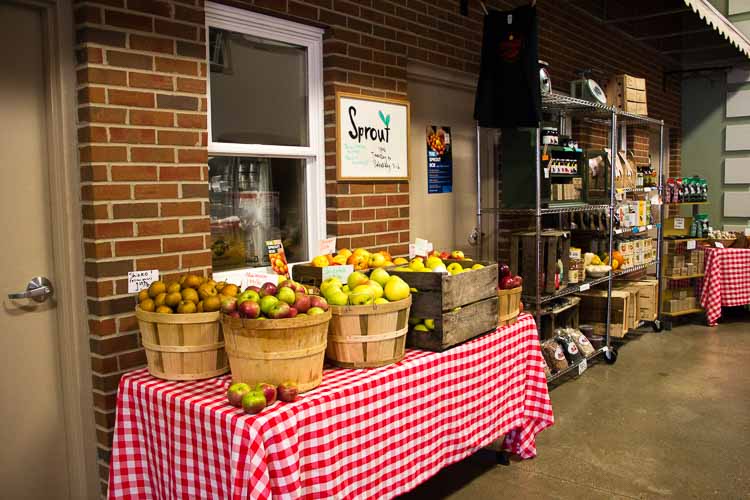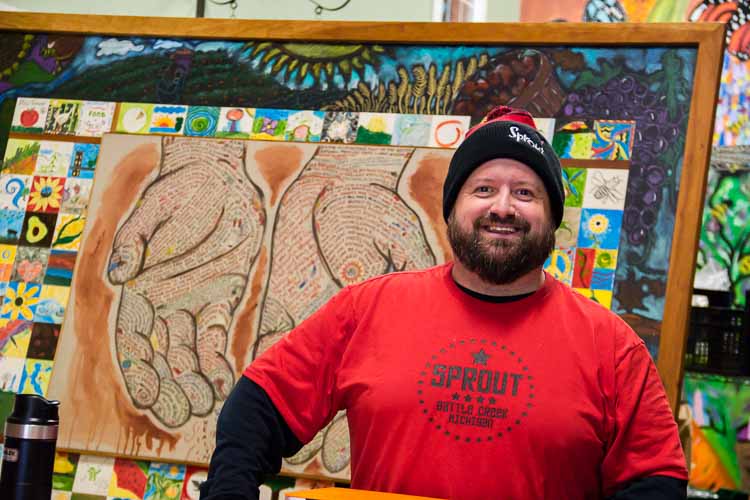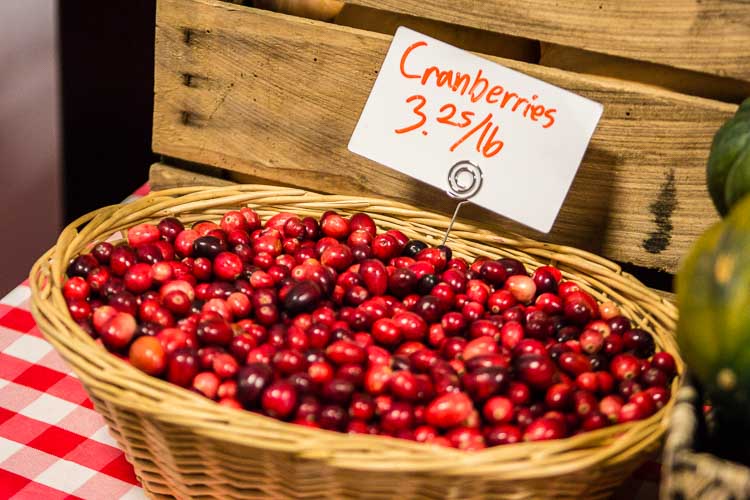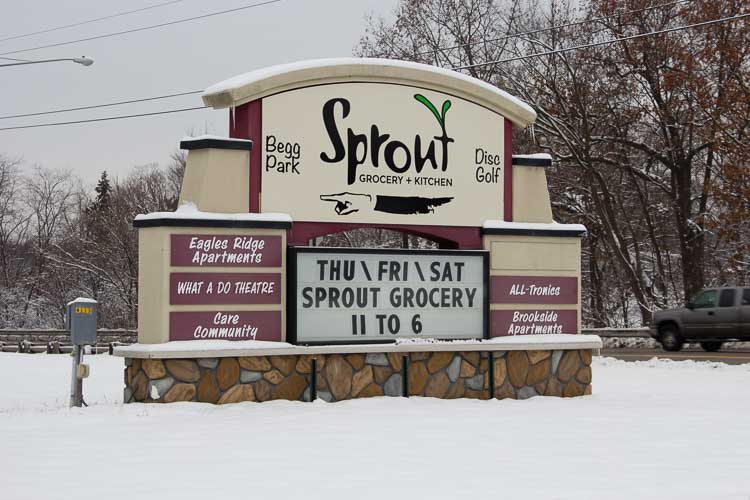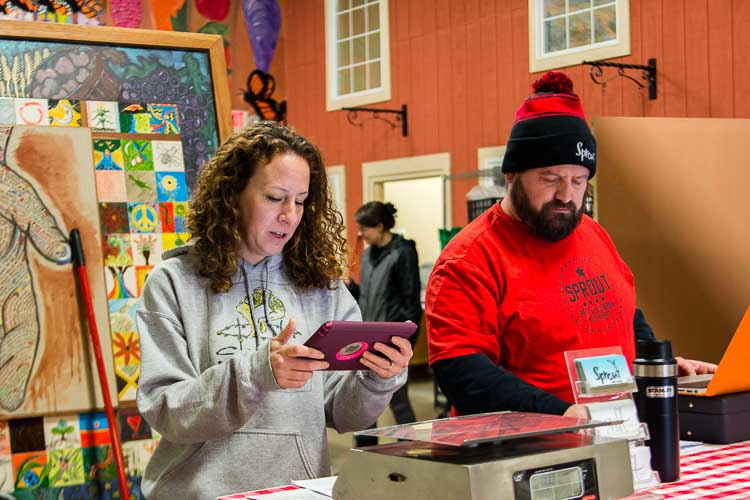Connecting customers with local farm fresh food is the job of the Michigan food hub
In Michigan, food hubs increase consumer access to fresh produce, and help farmers build a sustainable business model. While they all have similar goals, no two food hubs are alike. We found out why.
“Last week you could not eat romaine lettuce,” says Jeremy Andrews, chief executive of Sprout BC, the Battle Creek-based food organization.
He’s referring to a Nov. 26 warning by the USDA and other authorities that consumers, retailers, and restaurants should discard romaine lettuce due to a multi-state outbreak of e-coli infections, which started in October and was linked to lettuce shipped from parts of northern and central California.
“Guess where you could eat romaine lettuce from?” Andrews asks, in the manner of someone who has won his share of “I-told-you-so” arguments. “From the local food system.”
There was no shortage of romaine lettuce at Sprout BC or any of the 45 food producers from which it buys.
“And guess how many food recalls we’ve had?” he asks, pausing for effect. “None.”
Sprout BC, a 9-year-old food hub in Battle Creek, is intended to connect area people to healthier, fresher, naturally grown vegetables, fruits, and other foods sourced from local food producers.
“A food hub is a local foods aggregate and distributor, one that is a little bit more mission-focused,” Andrews said. “It really focuses on working with small independent farmers and food producers and getting their products to markets.”
Sprout is a nonprofit whose mission is to help the community prosper “through food, education and enterprise,” and is intent on allowing local people to operate and benefit from their own food system.
There are many food hubs of various shapes and sizes across Michigan, and no two operate in exactly the same way. But regardless of size and community served, all food hubs work to increase community access to locally- and regionally-grown or produced food.
“As things get bigger, things get messier,” says the Battle Creek native who developed a love for super-local businesses while living in Portland, Ore., and who became passionate about locally-sourced food while working at a food cooperative in East Lansing.
“Things slip through the cracks,” he says of large, centralized food systems that ship products from far away. “When the focus is on dollars, when the focus is on the bottom line and only for stockholders, I think we’ve lost our way.”
Sprout buys from local vegetable farmers, organic farmers, conventional farmers, cooperative farms, pasture-raised meat producers, cheese producers, and others. Its customers include area restaurants, food carts, school districts, breweries, hospitals, and individuals.
Sprout is comprised of a grocery store, an incubator kitchen, and an urban farm; the latter provides space for community farming and allows beginners to start farming businesses without being hampered by high costs.
Keeping it local
“The idea of food hubs working with smaller-scale producers is really helping those farmers stay in business,” says Kathryn Colasanti, specialist with the Michigan State University Center for Regional Food Systems. “And focusing in on a particular geographic region helps dollars stay in those areas.”
Steady sales to Sprout BC help dozens of area businesses, including Green Gardens Community Farm, which is located in the short stretch between Marshall and Battle Creek.
“Anytime we can get a sale, that’s good for us,” says Green Gardens owner/operator Trent Thompson.
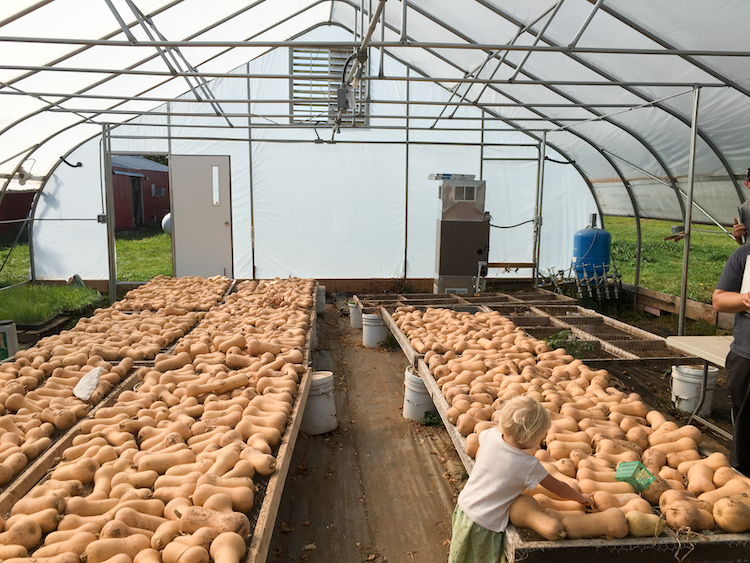
His farm wholesales more than 30 types of vegetables to Sprout BC, and sales to Sprout account for 10 to 12 percent of its annual revenues. With his wife Ruthie, Thompson has grown the operation from a 1.5-acre organic vegetable producer to a 7-acre farming and greenhouse business.
“I’m trying to have a year-round farm in Michigan, where we’re selling produce year-round,” Thompson says. That will allow him to retain his five workers throughout the calendar year. Currently, they work part-time for three to four months of the year.
Green Gardens is a food hub itself and sells produce from its location three days a week, which, combined with weekly Saturday sales at the Kalamazoo Farmers Market, make up the bulk of the farm’s sales.
From small to large, food hubs serve communities
Cherry Capital Foods is a large food hub that originated with one man using a van to get products from a few mid-size farms to markets in the Traverse City area. Today, it is a full-line food distributor to restaurants and retailers such as Lucky’s, Tom’s Food Markets and Kroger, as well as gourmet grocers, hospitals and schools.
It has more than 50 workers and a fleet of large refrigerated trucks distributing Michigan-grown products in the Traverse City area and all over the state. The vast majority of its foods are sourced in Michigan but those are supplemented by some products from other providers in the Great Lakes region.

Its growth has been driven by Chip Hoagland, a Traverse City-area investor who has been described as a local food evangelist.
“He is a foodie and a believer in developing local and sustainable food systems,” says Wendy Becker, vice president of marketing and sales for Cherry Capital Foods. “He has put his money where his mouth is, helping farmers, growers and ranchers, and getting them to market.”
Hoagland became owner of Cherry Capital Foods about 11 years ago, at the beginning of the farm-to-table movement.
“We think that purchasing locally helps the local economy,” she says. “It keeps those dollars in the communities that we’re serving and also it’s a growing trend that people want to know where their food is coming from.”
“When you purchase, there is full transparency as to where it was grown,” she says, referring to how the livestock was raised as well as where the food items are grown or made. That is a transparency not directly available in large food systems.
Cherry Capital Foods is growing. In 2019, it will acquire Earthy Delights, another business owned by Hoagland. Earthy Delights buys, then retails foraged specialty foods, such as mushrooms and wild leeks, to chefs and restaurants.
Innovating new delivery models for customer convenience
Innovation continues to be necessary to help locally-grown products compete in the wider food industry. The Sprout and Green Garden Farms food hubs are embracing an overarching trend in the food industry – consumer convenience.
Sprout has launched the Sprout Box, a box of local produce and locally made products that can be delivered to people’s homes or businesses weekly. The service allows customers to choose from the hub’s menu of items, year-round. Sprout Boxes can be purchased in sizes ranging from $15 to $100.
Green Gardens Community Farm, which has operated with CSA (community supported agriculture) subscribers, was set to launch a similar service on Dec 1. Each subscriber would pay annually for fresh vegetables, then collect packages of them throughout the season as crops are harvested. But Thompson says, “That model was not digestible because people like to pick out what they want.”
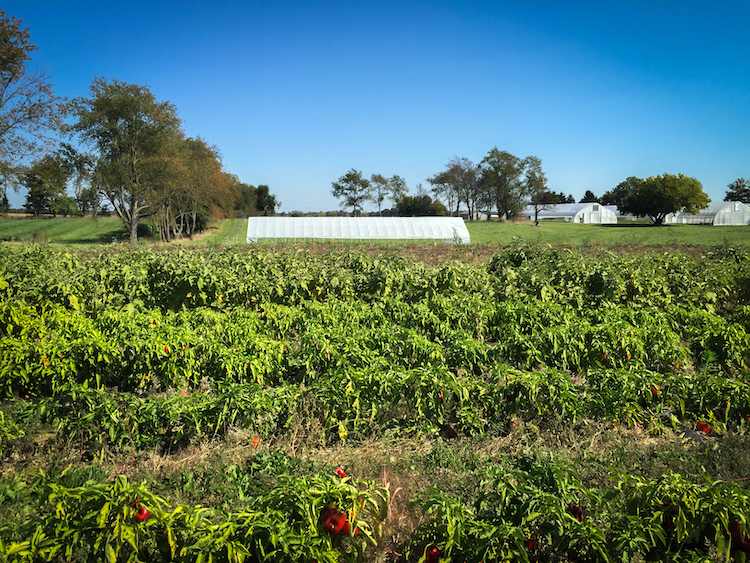
Rather than sell a box of whatever produce is available, the hub will allow customers to order what they want. Green Gardens will sell its packages, dubbed “Green Boxes,” on a weekly or bi-weekly plan.
“With the new model, they can pick out exactly what they want,” Thompson says. That includes locally-produced fruit, meat, eggs, butter, yogurt and maple syrup along with vegetables. Each Green Box will have a $25 minimum of vegetables.
Colasanti says each hub has to find a business model that works. Some may be food producers while others may market or distribute products. They differ from typical food distributors in that “the core idea of a food hub is that it is going to be source-identified,” Colasanti says, referring to the region it chooses to serve.
Transparency is also a core value. That involves educating consumers about the growers and producers involved.
“Food hubs are a test case of whether we can embed our societal values in the supply chain,” Colasanti says. These values include fair labor practices, environmental sustainability, and social justice to provide equity and access in the food system.
Sustainable food hubs also have the potential to help the state reach some of its health and wellness goals. A statewide goal was set in 2010 as part of the Michigan Good Food Charter to have Michigan foods account for 20 percent of all the produce sold in the state by 2020.
“We’re trying to create a product that people want – high quality local food – and make it convenient for them to purchase,” Thompson says.
This story is part of “Michigan Good Food Stories” a series that explores access, equity, and sustainability in Michigan’s thriving food economy. This work is made possible by Michigan Good Food and is supported by the W.K. Kellogg Foundation.
Photos, except where noted, by Susan Andress.
